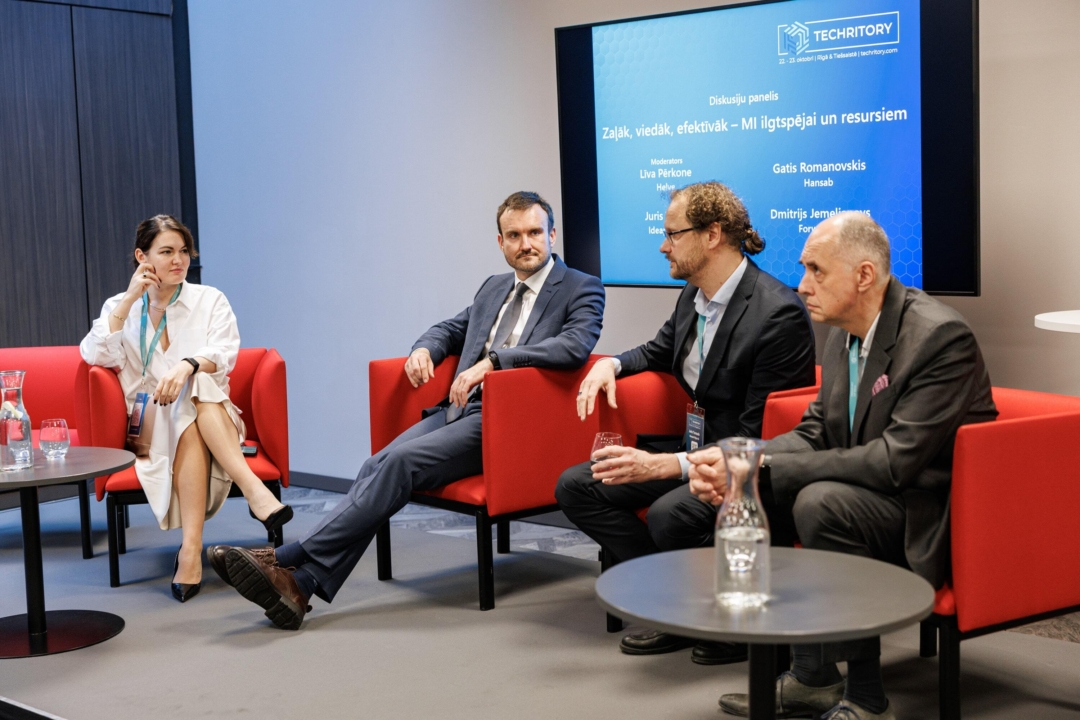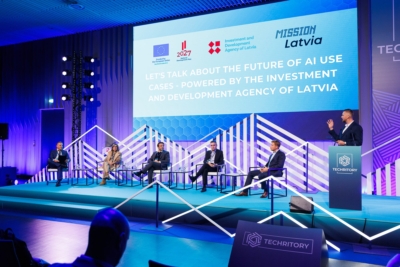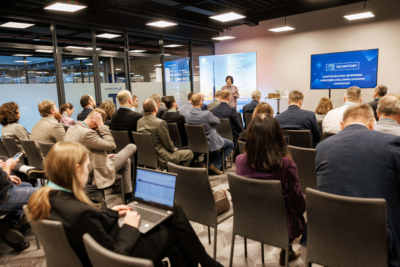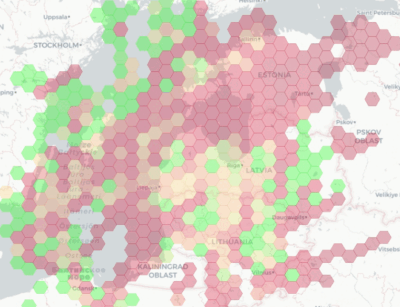Rapid technological development is fundamentally changing the business environment, forcing companies to seek new solutions to become more efficient, flexible, and sustainable. Digital transformation is no longer a future goal – it is the current determinant of competitiveness. Artificial Intelligence (AI) is one of the main tools of this era of change, helping companies not only optimize processes but also develop new approaches to customer service, marketing, data analysis, and sustainability.
Within the framework of the recently held Techritory forum, a co-creation event, Digital Transformation in Business: Experience and Perspectives, took place on October 23. The main goal of the event was to foster knowledge exchange and inspire businesses to boldly take the next steps in digital development by using AI tools to improve their operations. Participants learned about real-life experiences from Latvian companies and how AI is already helping increase productivity, reduce costs, strengthen customer trust, and make more precise business decisions.
The discussions featured representatives from Tet, Asya.AI, RR Network, Alsen, Ideaport Riga, Forward IT, and Helve. They shared examples of how AI solutions have changed their work processes and opened up new growth opportunities. Tet representatives discussed the application of AI in customer service, marketing, and data analysis, while Asya.AI, RR Network, Alsen, and Ideaport Riga demonstrated practical solutions to improve customer service with AI. Forward IT shared its experience using AI for data analysis and decision-making support, and Helve focused on sustainable, energy-efficient solutions that enable companies to work greener and smarter.
The event covered several practical topics that reflected the application of AI across various fields. AI solutions for customer service were demonstrated, including chatbots, virtual assistants, and automated, data-driven communication. It was also discussed how AI helps in marketing and content creation by generating text, images, and video materials. Additionally, attention was paid to data analysis and decision-making, using predictive analytics and process optimization. The presentation concluded with examples illustrating how AI technologies can advance sustainability and optimize resource utilization within the energy sector and beyond.
The event’s discussions also addressed the main challenges Latvian companies faced when implementing AI solutions. These included developing employees’ digital skills, ensuring data security, and guaranteeing the responsible use of technology. The central question speakers sought to answer was: How did companies move from AI experimentation to practical solutions that yielded tangible business results?
The event was organized by the Investment and Development Agency of Latvia (LIAA) in cooperation with the Latvian Association of Artificial Intelligence (MILA).
The event was financed with the support of the European Union’s Recovery and Resilience Facility – NextGenerationEU.
The views and opinions expressed are solely those of the author(s) and do not necessarily reflect the views of the European Union or the European Commission. Neither the European Union nor the European Commission can be held responsible for them.




